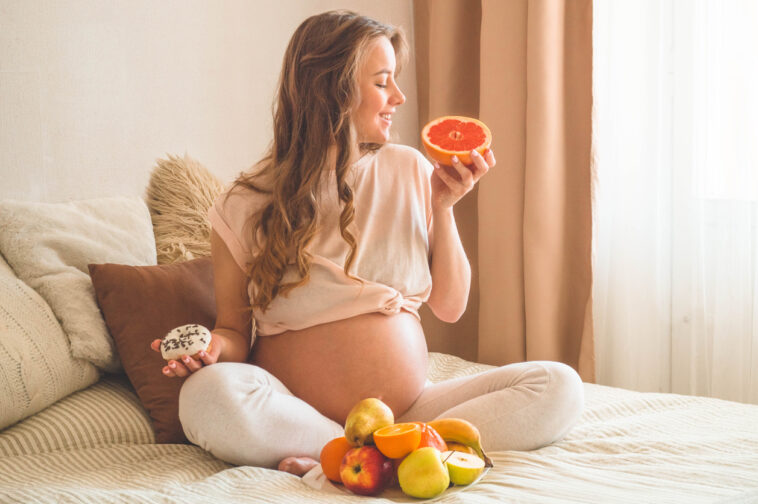Raw meat, fish or shellfish, uncooked eggs, alcohol, raw milk cheeses, bloomy rind or blue cheese, tarama, sprouted seeds, etc. During pregnancy, we are bombarded with foods that are not recommended to the point that we can have the impression that everything is forbidden. Besides this, we also have foods to limit such as coffee which should not be overindulged. Of course, this is to avoid contamination and limit the risks of toxoplasmosis, listeriosis and salmonellosis, but also for health reasons. However, we are warned so much about the dangers of different foods that we almost forget that a pregnant woman cannot eat only dry bread and water! Eating a healthy and varied diet also allows the future mother to be in good health and her baby to develop well. So, here are the elements to prioritize!
In addition to good hydration which plays an essential role, adopting good eating habits as quickly as possible will help cover the nutritional needs of the baby and the mother without necessarily needing to resort to food supplements. Let us also remember on this point that only your doctor should prescribe them to you to avoid an overdose that could be harmful. Don’t improvise a prescription without his advice!
1) Fish among the best foods during pregnancy
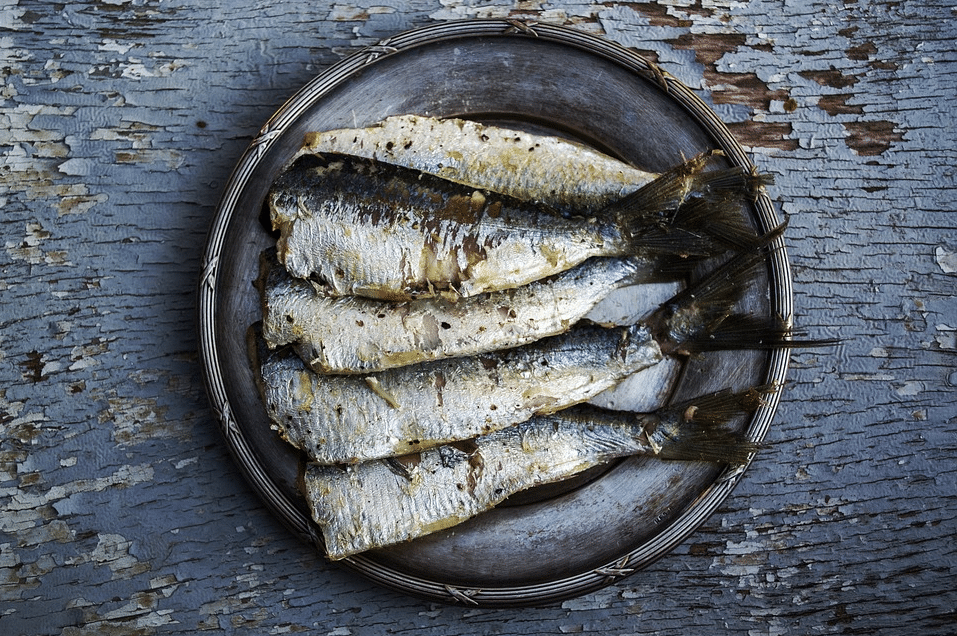
We find in fish iron, selenium, iodine, vitamin D and vitamin B12, but also omega-3. Oily fish are particularly prized here for their high content of omega-3, good for the development of baby’s brain cells and eyes. It is often recommended to eat fish twice a week, including fatty fish once. However, it is necessary be careful not to consume too much mercury. To do this, eat small or medium-sized fish: mackerel, herring, fresh sardines, anchovies, trout, eel, turbot, sole, cod, pollack, perch, sea bream, mullet, hake, whiting, mullet, salmon, dab, etc. You will have understood: the choice is wide! On the other hand, avoid large predators which will be richer in mercury : swordfish, shark or even tuna.
2) Lots of fruit to stay in shape and for baby too!
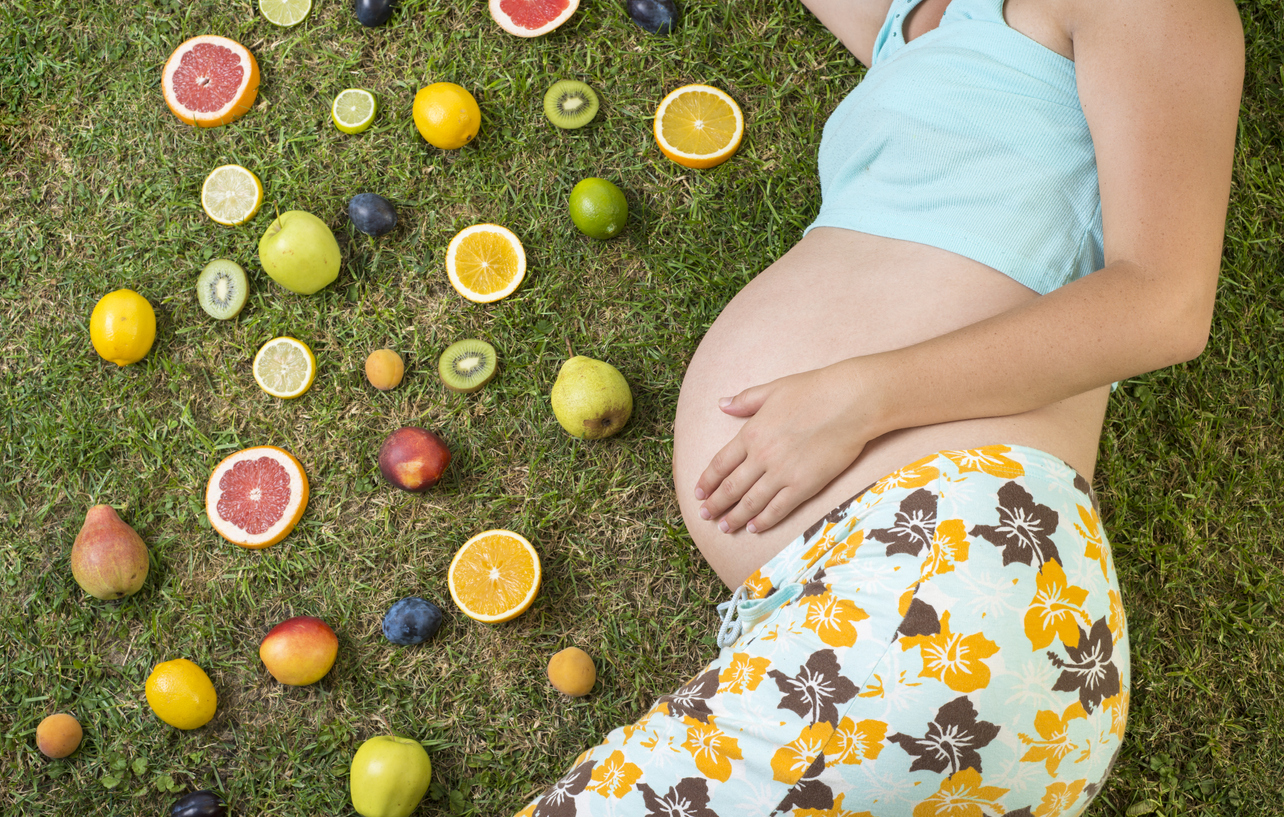
Fruits are foods very rich in water which therefore help to hydrate the body. It is therefore a good choice when you tend to shy away from water a little. This therefore offers a good complement. Fresh fruits also provide dietary fiber, trace elements, vitamins and minerals, but also antioxidants that are beneficial both for the mother and for the good development of the unborn child. To do this, opt for seasonal fruits, with much more vitamin content, which you eat whole!
3) Vegetables, essential foods for pregnancy
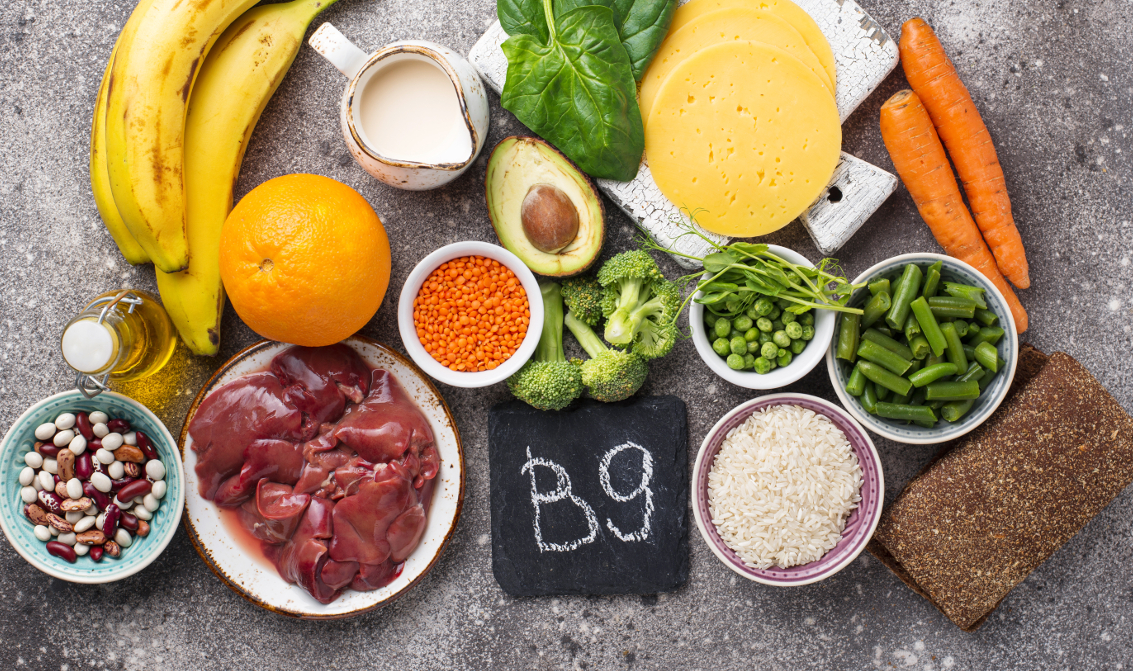
Fruits and vegetables are in the same boat and provide the same type of benefits. Certain vegetables in particular are very important during pregnancy. This is the case for vegetables rich in folic acid (also called folate or vitamin B9). This substance is found in leafy vegetables and helps promote development of the nervous system of the embryo. They also help to reduce the risks of growth retardation, but also of serious congenital malformations. It is often prescribed in the form of a food supplement, but a good, careful diet will provide what you need! To do this, give pride of place to green vegetables (spinach, artichoke, watercress, lamb’s lettuce, beans, peas, etc.) or seeds (walnuts, chestnuts, etc.).
Good to know: In the same aisle at the supermarket, consider taking sweet potatoes, very rich in beta-carotene converted into vitamin A by our body. Pregnant women must increase their vitamin A intake by 10 to 40%. Orange foods are your allies!
4) Legumes, too often forgotten!
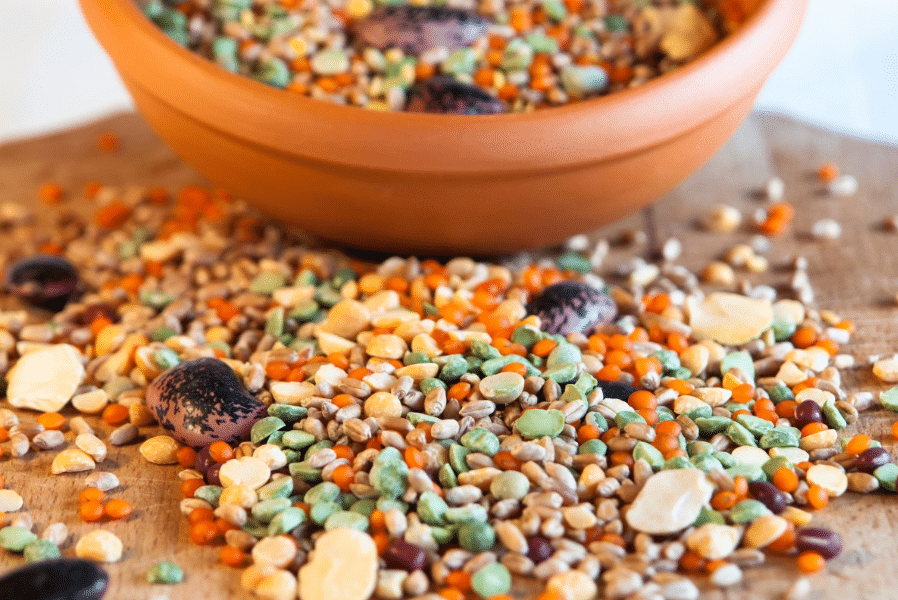
Lentils, beans, split peas, chickpeas, flageolet beans, lentils, dried beans (red beans, white beans, black beans, mung beans or even cornillas), etc. Legumes (or pulses) are rich in fiber, protein, minerals, essential amino acids and vitamin B9. Unfortunately, we tend to avoid them so as not to aggravate the digestive disorders already common during pregnancy. They indeed contain phytic acid which makes them particularly difficult to digest. To consume them without hindering your digestion, remember to let them soak a night in cold water added with a dash of lemon juice the day before cooking. You can also cook them with a spoonful of baking soda.


